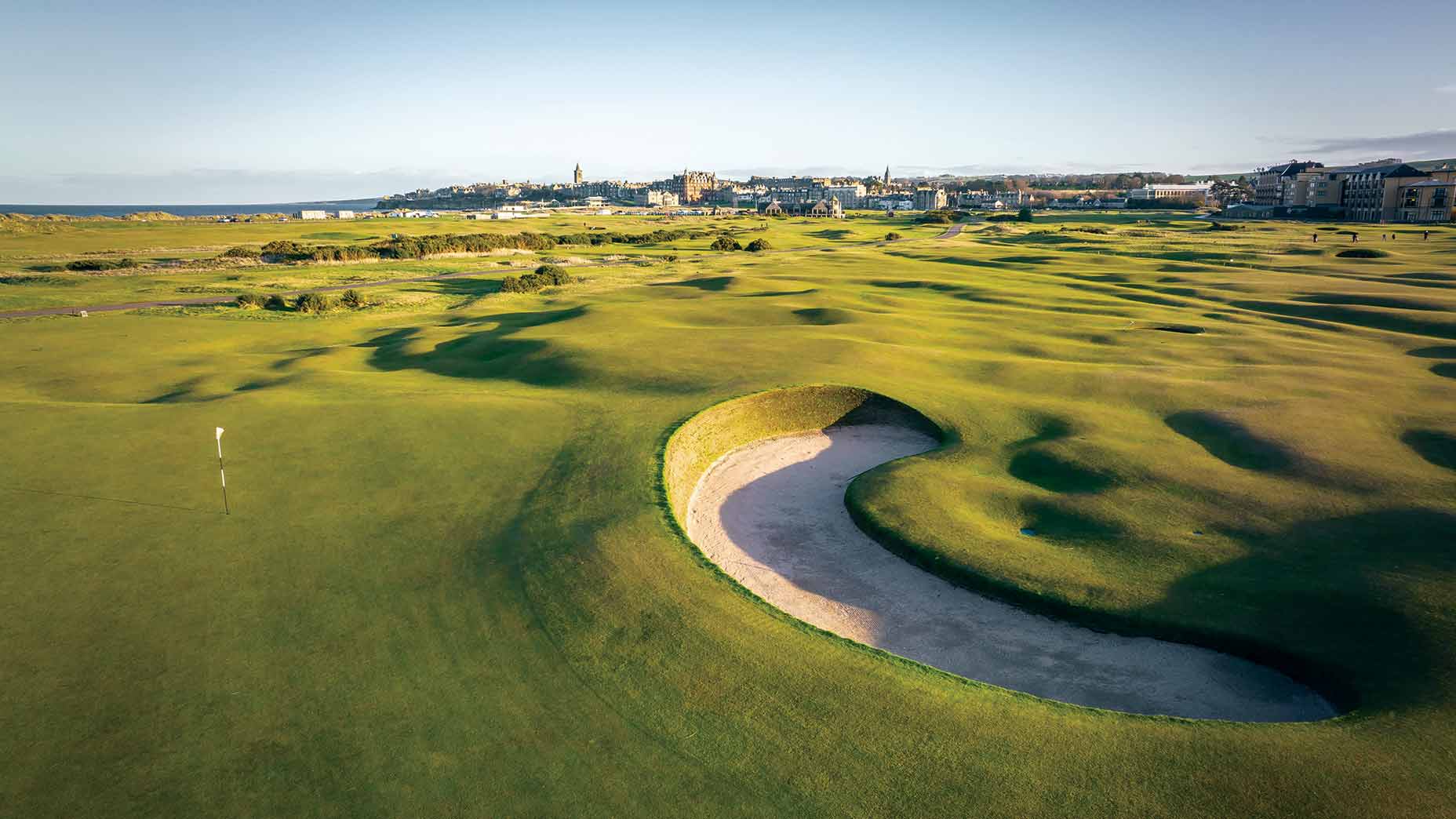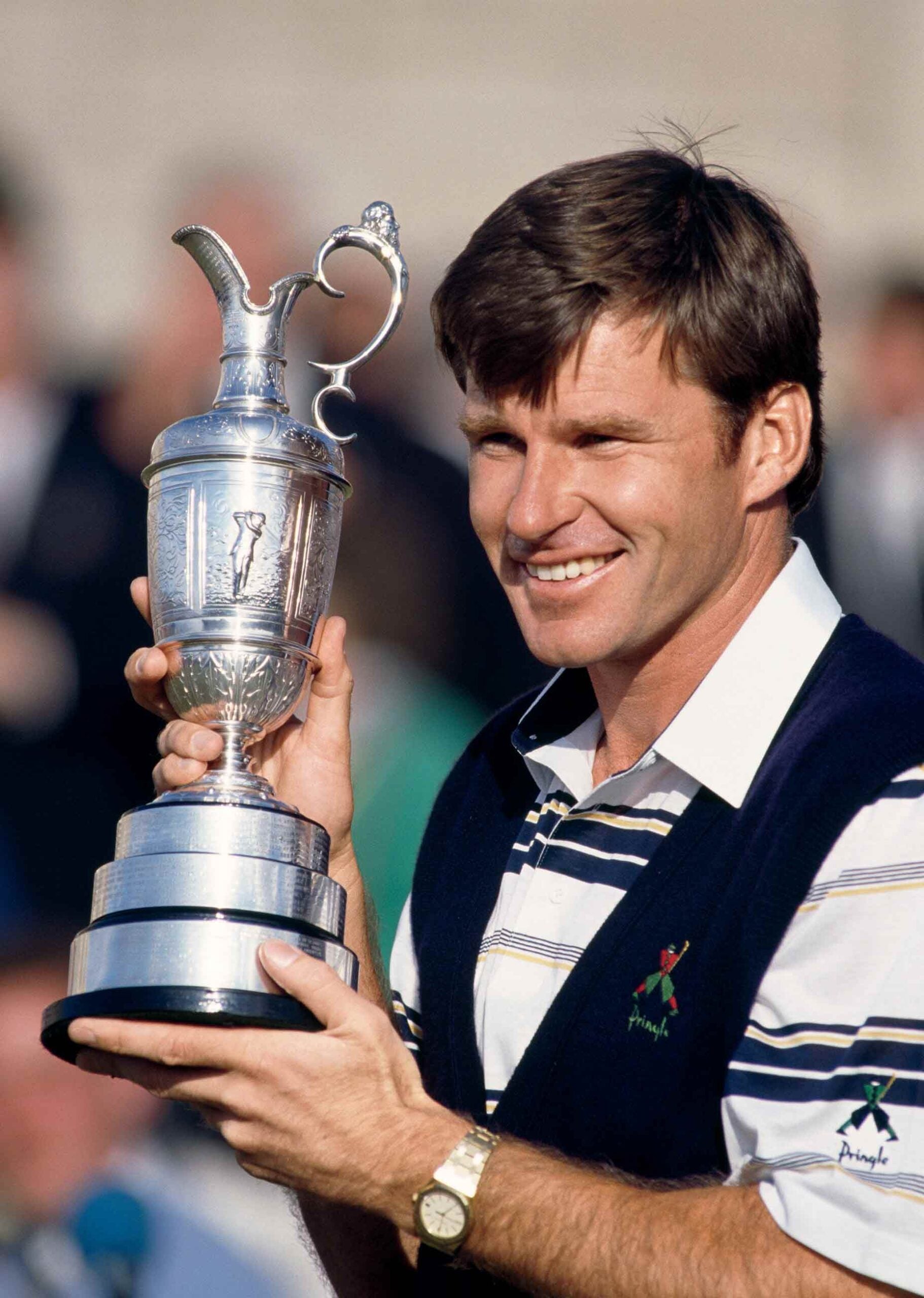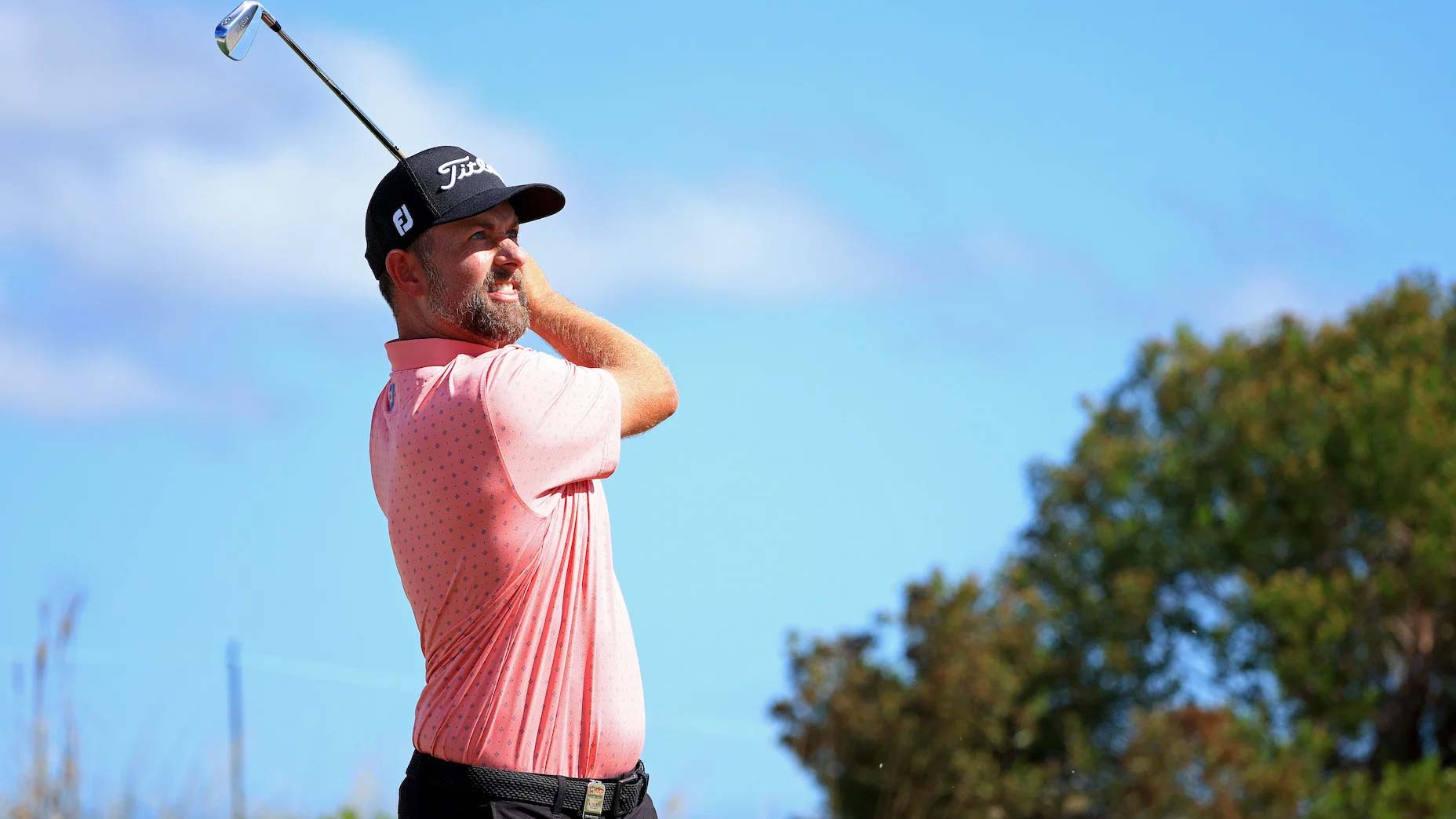
Spieth? Rory? … Rahm?! Let’s take an early look at the Open favorites.
Getty Images
Nick Faldo did it. Ditto Sam Snead and Seve Ballesteros. Tiger Woods and Jack Nicklaus pulled off the trick twice.
Time after time, when golf’s oldest championship has come to the Old Course, the game’s biggest names have come out on top.
Except when they haven’t. John Daly and Zach Johnson both claimed the Claret Jug at St. Andrews. In 2010, Louis Oosthuizen ran off with the title by seven shots.
If anything is clear from the historical record, it’s that anything can happen at the home of golf, which has hosted the Open more often than any other venue. Of all the majors, the Open Championship is perhaps the least unpredictable, so let’s take a shot at it — with the help of an A-list architect, a top Tour coach, a handicapper and a past champ.
UNDERSTANDING THE DESIGN
At first glance, the course could be mistaken for an open field, fringed by wispy grasses, with little in the way of elevation change. But what you see isn’t what you get at a course that Scottish-born golf architect David McLay Kidd calls “the most nuanced on earth.”
Never mind the lack of dramatic ups and downs. The terrain isn’t flat. It’s a wonderland of humps and hollows, brimming with blind shots and quirky bounces. The subtleties, tough to puzzle out when you’re playing the course, are even harder to appreciate on television.
“[The Old Course] is completely contrary to what I would call American golf, in that it’s not a visual extravaganza,” Kidd says. Attacking it, he says, requires a leap of faith and a measure of acceptance. On many holes, you must choose a line and trust it, avoiding hidden-from-view hazards, knowing that your ball won’t stop where it lands. Idiosyncrasies abound. Take the par-4 17th, the fabled “Road Hole,” with its daunting tee shot pinched on the right and a green-side bunker that does to balls what black holes do to galactic matter.
“It’s such a weird and twisted hole that I’d get shot if I tried to build it today,” Kidd says. That it makes sense at the Old Course tells you something crucial about this year’s Open venue.
“You can spend a lifetime here,” Kidd says, “and not figure out its intricacies.”
HANDICAPPING THE EVENT
If you’ve won the green jacket, do you have a better crack at the Claret Jug? As a golf handicapper, Brady Kannon looks hard at recent form. But he also scrutinizes the historical record, searching for patterns in player performance. Something he’s noticed: “Guys who’ve done well at Augusta have tended to do well at the Old Course too.”
And not just guys like Nicklaus, Ballesteros, Woods and Faldo, whose games stacked up well anywhere they pegged it. Consider Zach Johnson. Or Louis Oosthuizen, who came within a whisker of adding the Masters to his list of major wins.

The Cartgate bunker on the par-4 3rd is comma-shaped — and coma-inducing if you’re unlucky enough to get caught in its depths.
Patrick Koenig
“Marc Leishman and Jason Day are a couple of other guys who have good records at both,” says Kannon, who cohosts Long Shots, a PGA Tour betting show on the VSiN radio network.
Perhaps it’s only fitting. In designing Augusta, Alister MacKenzie drew inspiration from the Old Course. Or perhaps that tie only goes so far. Where the greens at Augusta National are lightning fast and heaving, they are relatively flat and slow around St. Andrews.
“At the Open, I probably place less emphasis on putting than I do at any other event,” Kannon says. “Generally, I think the lack of speed on the greens brings everyone into play.”
Who, then, stands out? Given that wind can be a big disruptor, Kannon leans toward low-ball hitters. “I’ll be looking at some of the younger guys, like Joaquin Niemann and Daniel Berger,” he says. And he’s already placed a bet on a wily veteran.
“Unlike Augusta, the Old Course is an easy walk, so that won’t be an issue,” Kannon says. He’s got Tiger at 50:1.
MASTERING THE MENTAL GAME
Every Tour pro can control his ball, but none can control the weather. That’s worth remembering at the Open, where fate can be determined by tee time alone.
“More than any other tournament, you can have no chance based on being on the wrong side of the draw,” says coach Claude Harmon III. Sure, it helps to shape your shots, just as it pays to have a sound grasp of the ground game. But, Harmon says, “most players these days are so good and so adaptable, they can adjust quickly and play anywhere.”
Nor do many players modify their games much when they touch down across the pond.

Nick Faldo of England celebrates with the trophy after winning the 119th Open Championship at the Old Course at St. Andrews in 1990.
Popperfoto via Getty Images
“You’ll see creative shots, but, at the elite Tour level, these guys have so much skill and confidence, they’re pretty much going to show up and do what they do,” Harmon says.
Gone is the era of Open specialists whose games seemed uniquely suited to the test. Of today’s stars, Harmon says Jordan Spieth would appear to fit the profile, given his creativity. “And it’s no surprise that he’s been an Open champion.”
On the other hand, Harmon says, “Rory McIlroy hasn’t dominated historically the way you think he would.” No wonder forecasting can feel like folly. If there’s one metric that matters above all, Harmon says, it’s the mental game.
“It’s as much about patience and mindset as anything,” he says. “You’ve got to understand that you are going to hit some good shots that wind up in some bad places.”
That’s one of the things Harmon’s father, famed coach Butch Harmon, did to help Phil Mickelson win the 2013 Open. “He encouraged him to embrace the randomness.”
FINDING THE RIGHT STUFF
Zach Johnson has played in three Open Championships on the Old Course. In each of those events, the winners carried 14 clubs in their bags.
“Otherwise,” Johnson says, “we had nothing in common.”
That diversity reflects the beauty of a course that favors no one. People often say you need to hit it low. And you do, Johnson says, though at times it helps to launch it. And you also have to know how to fade and draw it. Your wedges must be sharp. Long irons too.
“Whatever you do poorly, the course will expose it,” Johnson says.
You can try to plan. It’s one way to make the golf gods chuckle. No strategy makes sense until you know what the wind is doing.
“The advice you always hear is to hit it left because you’re better off left going out and coming in,” Johnson says. But, if the gusts are blowing at a force and direction you weren’t expecting, you’ve got to be prepared to manufacture something else. A stout par 4 on Thursday might be drivable on Sunday.
The one consistent truth is that the greens “are slow and firm” compared to most Tour venues. Often, Johnson says, “the fairways are faster, and so you have to adjust.” The winning formula, he says, is “imagination” and the athleticism to “pull off any shot under any condition.”
If he had to pick a winner — why not? — he’d pick himself. “It’s always been my favorite course anywhere, and, now, coming back after winning, I can’t wait.”
WHAT THE GOLF GURUS SAY
Under the veil of anonymity, GOLF staffers picked their front-runners for the 2022 Open. Here, in order of top vote-getters, are some hopefuls and hot takes.
JON RAHM. “Not only will he win at the Old Course, I’ll tell you how: by draining a birdie on the 72nd hole, following in the footsteps of his country-man, Seve Ballesteros.”
JORDAN SPIETH. “The game’s ultimate grinder has always played well at the Open, where creativity and will is of the utmost importance. There’s lots to like about his game this summer too.”
JUSTIN THOMAS. “At Southern Hills, he fought off a storm of self-doubt to finally win his second major. Fitting for a guy who — take note — is among the game’s best in foul weather.”
TIGER WOODS. “A two-month break from the PGA will do his aching body a world of good — as will the Old Course’s flat terrain. Time for the game’s preeminent iron player to shine again.”
MATTHEW FITZPATRICK. “The Brit has been playing lights out in the States (oh yeah, and just won a U.S. Open). Familiar UK conditions could be just what he needs to keep the momentum going.”
VIKTOR HOVLAND. “An elite driver of the ball who, at St. Andrews, won’t need to worry too much about his substandard chipping game.”
SHANE LOWRY. “He’s quietly turned into one of golf’s most consistent performers, especially in difficult weather. He’s also finished inside the top 25 in five of his last six majors.”
CAMERON SMITH. “Brilliant short game, and he keeps knocking on the door. It’s gotta Open soon, right?”









